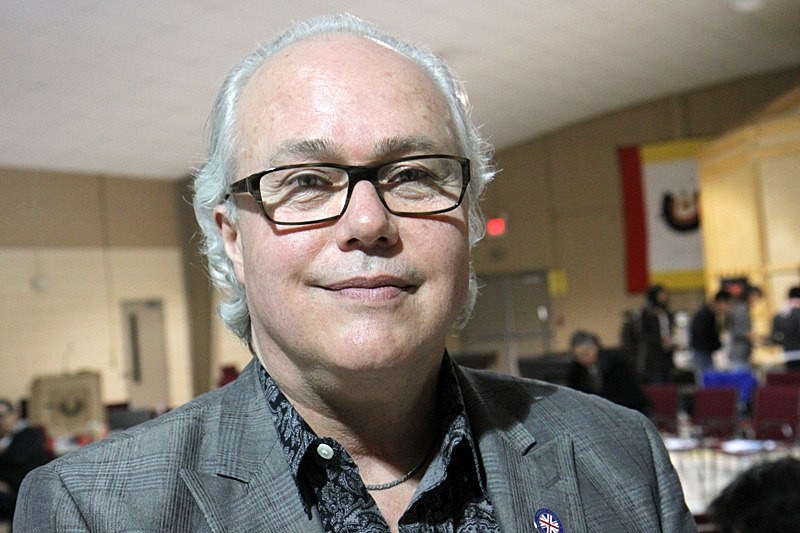Abolishing the Indian Act is the first step in creating better prosperity for Aboriginal communities, says a First Nation band councillor.
A large number of people attended the Robinson Superior First Nation gathering to discuss the treaties. The two-day gathering, which started on Friday, was held at the Ka-Na-Chi-Hih Treatment Centre and focused on providing information about the treaties including a history, creating a clear message and describing the roles both the federal government and First Nation communities play.
Clifford Tibishkogijig, a band councillor for Whitesand First Nation, was one of the people who attended.
The former chief said he wanted to know how well members understood the treaties. The biggest interest for him was looking at ways to implement parts of the treaties.
He said it’s important to take small steps towards change that benefits everyone.
One of the changes he suggested was the abolishment of the Indian Act.
“I may be harsh but one way is abolishing the Indian Act and abolish the department of Indian affairs,” Tibishkogijig said.
“It’s a $9 billion bureaucracy that is not working. It’s a huge tax burden to all Canadians across this country. It has been there for hundreds of years and it has done nothing to serve the First Nation people. A new generation is coming up and I think we need to carve a new treaty path with Canada.”
Tibishkogijig believes people are still trying to grasp the true spirit and intent of the treaty since it hasn’t yet been fully implemented.
Some First Nation communities look at fully implementing the treaties but Tibishkogijig said he doesn’t see that happening realistically.
“The government is having difficulty in not only recognizing but also implementing because implementing the treaties is going to be astronomical, he said. “It could potentially have a huge economic impact on not only Ontario but also Canada. I think the governments are walking very carefully in how they go about implementing parts of the treaty.”
Lawyer Kim Fullerton gave a presentation about the treaties during the gathering. Having practiced law for about 30 years, he said he wanted to tell both sides of the story and show how the Crown sees the treaties.
Although it may be difficult sometimes to act as an apologist for the Crown, Fullerton, who only takes on Aboriginal clients, said both sides have to be told in order to get the full picture.
But getting that full picture isn’t an easy task to accomplish.
“It’s very complicated,” he said. “I love it because there’s a lot of history and a lot of law but it is very complicated. You have very polar opposites in terms of views; the Crown has as view of what the treaty is. It was written down in black and white and the First Nations who could not read English at the time say ‘that’s not our understanding of the treaty’. It leads to long complicated battles.”
Fullerton suspects the interpretations of the treaties is one of the main problems surrounding negotiations. Hundreds of years ago during the fur-trading era when the treaties were first signed, Fullerton said there was a spirit of cooperation and First Nation believe that the document is about sharing, not selling.
Fullerton believes the Crown now see it as a sale, which is not what First Nation communities were led to believe.
Chief Wilfred King of Gull Bay First Nation said Idle No More movement brought the issues of the treaties to the forefront. He called the meeting long overdue because the treaty is the core of Canada’s and First Nation’s relationship.
“I’d like to see full treaty implementation,” King said. “Idle No More raised the outstanding issues about the legal rights, treaty rights, Aboriginal rights and protection of lands and resources. Part of that process is the treaty.”
King added the First Nation people have been kept “artificially poor” and the end goal is seeing prosperity for all communities.
He added that more meetings will be held at later dates.
“We have to show we’re in solidarity with the Idle No More movement,” he said. “What they’re talking about it what we’re talking about.”
For more information, visit the Robinson Superior First Nation Facebook page for updates.
Sign in or register
- Messages
- Post a Listing
- Your Listings
- Your Profile
- Your Subscriptions
- Your Likes
- Your Business
- Support Local News
- Payment History
Registered Users
Already have an account?
New Users
Create a free account.
